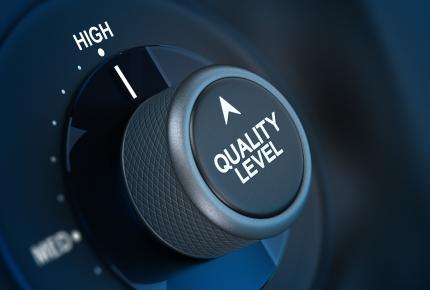The quality management system has made us stronger
The company AG Sundhedsfremme has chosen to follow the quality management standard within the health sector, DS/EN 15224. According to quality manager, Peter Trampedach, this has resulted in growth, a better management of processes and less paperwork.
10 years ago, the company AG Sundhedsfremme started as a two-person company and during the last 10 years it has grown to include 12 employees.
We have benefited from the standard DS/EN 15224 in our operation as well as in developing our business, and it has helped us grow and manage processes in a better way without having caused heavy and boundless paperwork, says Peter Trampedach, quality manager at AG Sundhedsfremme. The company carries out investigations required by Arbejdstilsynet (Work Environment in Denmark).
Annette Trampedach, who is a nurse and the company’s manager, is also pleased with the quality management system according to the DS/EN 15224 standard.
It has given us strength and our processes have become more reliable. We choose the amount of paperwork ourselves according to the risks in the processes, tells Annette Trampedach.
Hospitals will be able to reduce their paperwork
The EU standard, DS/EN 15224, has existed for more than 10 years and according to Valérie Viejo, who is an auditor at Bureau Veritas Certification, is it a shame that so few within the health sector, for instance hospitals, uses this standard.
Hospitals complain that they have too much paperwork required by their present quality management system. This is a shame as another more inclusive EU standard like DS/EN 15224 exists. This standard ensures that all accredited health units according to this standard have a common system like other accredited health units within the EU, says Valérie Viejo and elaborates:
This means patients receive equal treatment and communication in each of these accredited health units. In addition to this, the standard requires that improvements must be made continuously in accordance with the quality management system.
more patient care
Valérie Viejo has worked with hospitals both as a pharmacist for many years and later as an auditor for more than 14 years – before and after the implementation of quality management systems at hospitals.
The world of hospitals has changed a lot, since I started as a pharmacist in the 1980ties. At that time many things were not managed but I also do not think paperwork should control everything. Hospitals still need employees who have time for their patients. Care is a large and important part of hospitals which is limited if there is too much paperwork and performance pressure, says Valérie Viejo and continues:
Today it is possible to replace paperwork with electronic data and many tools can assist in managing the processes. Communication is one of these and training is another. A third is the understanding of individuals’ roles. It is also important to have the right work equipment. Today, software relieves the pressure on the health staff. Perhaps it is time to replace the health standard with the more flexible EU approved DS/EN 15224 standard?
Health staff must help defining processes
The standard is based on DS/EN ISO 9001:2015 and has a process approach with continuous improvements in the system. It is easy to implement the DS/EN 15224 standard in companies which already have an ISO 9001 quality management standard, as both standards are organised according to the High Level Structure (HLS).
The standard has existed since 2012. It includes a guidance in how to implement it. I don’t understand why it isn’t more widespread within the Danish health industry when it has so many advantages, says Peter Trampedach.
The standard focuses on patients and other customers (e.g. relatives). It defines important processes, and companies choose those which are relevant.
The health sector should be more involved in legal requirements, so companies are aware of these and choose the best solutions in their processes. In small as well as large units, employees must be able to make their decisions based on their knowledge of actual risks and the necessary level of control. The heavy processes on Danish hospitals can be simplified by using the DS/EN 15224 standard, ends Valérie Viejo.
The purpose of a quality management system according to DS/EN 15224:2016 is:
- Efficient management of health companies and patients’ risks
- Using quality control procedures within the health area
- Evaluation of clinical efficiency
- Sufficient and updated staff training and conditions
- Continuous improvements in the clinical performance
DS/EN 15224 is not only suitable for all companies within the health sector but also at doctors’ practices, small hospitals, and health related clinics.


